MercoPress. South Atlantic News Agency
Tag: Falklands referendum
-
Sunday, December 9th 2012 - 14:39 UTC
Falkland Islands: “Nothing to Fear”
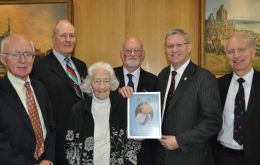
Falkland Islanders preparing to exercise their right to self-determination in a landmark democratic vote next March were pledged overwhelming support by the Falkland Islands Association at its annual general meeting in London on Saturday presided over by its chairman, Mr Alan Huckle, a former Governor of the Islands.
-
Saturday, December 8th 2012 - 03:54 UTC
Mercosur summit rejects Falklands’ self-determination referendum
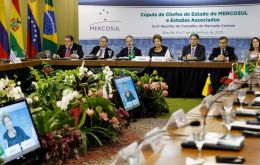
Presidents from Mercosur full and associate members meeting in Brasilia rejected the coming Malvinas Islands self determination referendum and anticipated that whatever the result of the ballot “it will not alter at all the essence of the Malvinas question”.
-
Saturday, December 1st 2012 - 07:25 UTC
Unasur summit rejects Falklands’ referendum and wants to limit ‘vulture funds’
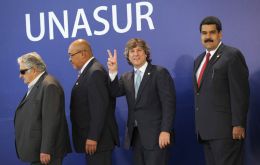
The Union for South American Nations (Unasur) agreed to limit the actions of ‘special situation funds’ (hedge funds or ‘vulture funds’) and categorically rejected a referendum that will take in place in the Falkland Islands in March to decide the political status of the archipelago, during the summit that took place in Lima.
-
Monday, November 26th 2012 - 18:46 UTC
Argentina organizing major diplomatic Falklands “anti-referendum” campaign
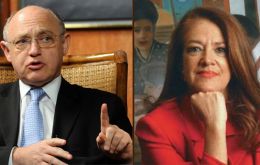
Argentina has started a major diplomatic campaign in an attempt to deny success to the Falkland Islands March referendum on its nationals’ political status, fearing the negative international repercussions for its sovereignty claims over the disputed Islands.
-
Monday, November 26th 2012 - 07:19 UTC
Falklands’ March 10/11 referendum, a democratic exercise of self determination
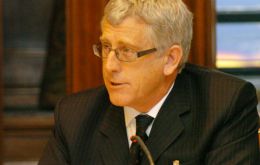
The Falklands referendum on March 10/11 is designed to simply ask the people of the Islands to state clearly their wishes regarding their political status, and this is supported by democratic practice, the UN guiding principle of self determination and even by Ban Ki-moon in recent reports in the Argentine press, said lawmaker Dick Sawle.
-
Monday, November 12th 2012 - 21:57 UTC
Ban Ki-moon and colonialism: people should be able to decide their own future

Secretary General Ban Ki-moon said UK is not violating relevant UN resolutions referred to the Falklands’ and more specifically on colonialism, he argued that a prevailing impression is that “people living under certain conditions should have a certain level of capacities so that they can decide their own future”, be it independence or some kind of government in their territories.
-
Wednesday, October 31st 2012 - 23:01 UTC
Falklands’ proposed referendum question enters public consultation period

The Falkland Islands government has opened a public consultation on the proposed referendum question on the Falklands Political Status to be held in early 2013. The proposed question was arrived at and agreed by all members of the Legislative Assembly having received expert advice on the issue.
-
Friday, October 26th 2012 - 07:24 UTC
Falklands’ 2013 referendum: determined to be masters of their future

A group of Central American journalists recently visited the Falkland Islands for a week as guests of the Foreign Office together with Bruce Callow from the UK Costa Rica embassy. During Mr Callow wrote in his blog about the experience regarding important issues for the Falklands such as the referendum next March on the future of the Islands.
-
Thursday, October 4th 2012 - 06:48 UTC
Falklands’ referendum will be done under scrutiny of “international observers”
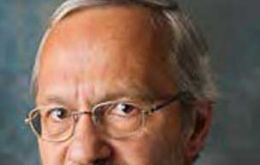
The referendum to decide the political future of the Falkland Islands will be done under the scrutiny of a “whole series of international observers” come early 2013, Legislative Assembly member Dr Barry Elsby has said.
-
Monday, September 17th 2012 - 18:29 UTC
Falklands’ referendum will send strong message to world public opinion
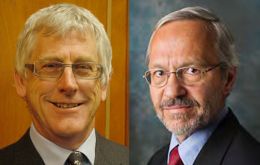
The Falkland Islands don’t expect Argentina to accept the results of the coming referendum, but will show the rest of the world, particularly South and Central America that the Islands are a democracy and have the right to self determination, said Falklands’ lawmakers in an interview with the Mexican newspaper Excelsior.
